- Home
- Scott Mariani
The Alchemist's Secret Page 5
The Alchemist's Secret Read online
Page 5
He paused, realizing that he couldn’t think of a single thing in the world that he could be doing instead of police work. ‘I don’t know,’ he conceded.
She shook her head, and snatched her hands away from his. ‘You were born to be a cop, Luc. You’d hate anything else. And you’d hate me, for making you leave the thing you love most.’
He was silent for a few moments, thinking. He knew, deep down, that what she was saying was true. He’d neglected her, and now he was paying for it. ‘Then what if I just took some time off, say a month? We could go away somewhere together–wherever you like, how about Vienna? You always talked about going to Vienna. What do you think? You know, the opera, take a ride on a gondola, all that stuff.’
‘Gondolas are Venice,’ she said dryly.
‘Then we’ll go to Venice as well.’
‘I think we’re a little past that, Luc. Even if I said yes, then what? After a month it would all start up again, same as before.’
‘Can you give me a chance?’ he asked quietly. ‘I’ll try to change. I know I have the strength to change.’
‘It’s too late,’ she sobbed, looking down into her glass. ‘I’m not coming home with you tonight, Luc.’
10
The place wasn’t quite what Ben had expected to find. To him, the term ‘laboratory’ conjured up images of a modern, spacious, purpose-built and fully equipped facility. His surprise had mounted as he followed the directions the guy on the phone had given him and arrived at the old apartment building in central Paris. There was no lift, and the winding staircase with its tatty wrought-iron banister rail carried him up three creaking floors to a narrow landing with a door on either side. He could smell the musty, ammonia smell of damp.
As he climbed the stairs, he kept thinking about the incident at Notre Dame. It haunted him. He’d been cautious on the way here, stopping frequently, looking in shop windows, taking note of people around him. If there was a tail on him now, he couldn’t spot it.
He checked the apartment number and rang the buzzer. After a few moments a thin young man with curly dark hair and a sallow complexion opened the door and showed him into what turned out to be just a pokey little flat.
He knocked at the door marked LAB, paused a beat and went inside.
The lab was no more than a converted bedroom. Work surfaces sagged under the weight of at least a dozen computers. Piles of books and folders everywhere threatened to tip over. At one end was a sink unit and an array of battered scientific equipment, test tubes on a rack, a microscope. There was barely space for the desk, at which sat a young woman in her early thirties, wearing a white labcoat. Her dark red hair was tied up in a bun, giving her an air of seriousness. She was attractive enough to wear no makeup, and her only adornment was a pair of simple pearl earrings.
She looked up and smiled as Ben came in.
‘Excuse me. I’m looking for Dr Ryder?’ he said in French.
‘You found her,’ she answered in English. Her accent was American. She stood up. ‘Please, call me Roberta.’ They shook hands.
She watched him for a reaction, waiting for the inevitable raised eyebrow and mock-surprise ‘oh–a woman!’ or ‘my, scientists are becoming prettier these days’ kind of comment that virtually every man she met came out with, to her great annoyance. It had almost become her standard test for gauging men she met. It was just the same infuriating knee-jerk response she got when she told guys about her black belt in Shotokan karate: ‘oh, I’d better watch my step’. Assholes.
But as she invited Ben to sit down, she didn’t notice a flicker of anything cross his face. Interesting. He wasn’t the typical sort of Englishman she’d come to know–no pink jowls, beer belly, awful taste in clothes or combed-over bald patch here. The man opposite her was tallish, something under six feet, with an easy grace in jeans and a light jacket over a black polo-neck that hung on a slender but muscular frame. He was maybe five, six years older than she was. He had the deep tan of someone who’d been spending time in a hot country, and his thick blond hair was bleached by the sun. He was the kind of man she could go for. But there was a hardness in the set of his jaw, and something in those blue eyes that was cold and detached.
‘Thanks for agreeing to see me,’ he said.
‘My assistant Michel said you were from the Sunday Times’
‘That’s right. I’m working on a feature for our magazine supplement.’
‘Uh-huh? And how can I help you, Mr Hope?’
‘Ben.’
‘OK, what can I do for you, Ben? Oh, by the way, this is Michel Zardi, my friend and helper.’ She waved a hand at Michel, who had come into the lab to look for a file. ‘Listen, I was just going to make a coffee,’ she said. ‘Want one?’
‘Coffee would be good,’ Ben said. ‘Black, no sugar. I need to make a quick call. Do you mind?’
‘Sure, go right ahead,’ she said. She turned to Michel. ‘You want a coffee?’ she asked him. Her French was perfect.
‘Non, merci. I’m going out in a minute to get some fish for Lutin.’
She laughed. ‘That damn cat of yours eats better than I do.’
Michel grinned and left the room. Roberta made the coffee while Ben took out his phone. He called the number for Loriot, the book publisher Rose had mentioned. No reply. Ben left him a message and his number.
‘Your French is pretty good for an English journalist,’ she said.
‘I’ve travelled around. Yours is pretty good too. How long have you lived here?’
‘Nearly six years now.’ She sipped the hot coffee. ‘So let’s get down to business, Ben. You want to talk to me about alchemy? How did you hear about me?’
‘Professor Jon Rose at Oxford University put me on to you. He’d heard about your work and thought you might be able to help me. Naturally,’ he lied, ‘you’ll be fully credited for any information used in the article.’
‘You can leave my name out of it.’ She laughed grimly. ‘Probably best not to mention me at all. I’m officially the untouchable of the scientific world these days. But if I can help you, I will. What d’you want to know?’
He leaned forward in his seat. ‘I’m looking to find out more about the work of alchemists such as…Fulcanelli, for instance,’ he said, sounding deliberately casual. ‘Who they were, what they did, what they might have discovered, that kind of thing.’
‘Right. Fulcanelli.’ She paused, looking at him levelly. ‘How much do you know about alchemy, Ben?’
‘Very little,’ he said truthfully.
She nodded. ‘OK. Well, first off, let me get one thing straight. Alchemy is not just about turning base metals into gold, all right?’
‘You mind if I take notes here?’ He drew a small notepad from his pocket.
‘Go ahead. I mean, in theory it’s not impossible to create gold. The difference between one chemical element and another is only a question of manipulating tiny energy particles. Strip off an electron here, add one on there, and you can theoretically change any molecule into any other. But for me, that’s not what alchemy is really about. I see the base metals into gold thing as more of a metaphor.’
‘A metaphor for what?’
‘You think about it, Ben. Gold is the most stable and incorruptible metal. It never corrodes, never tarnishes. Objects of pure gold stay perfect for thousands of years. Compare that to something like iron, which rusts away to nothing in no time. Now, imagine if you could find a technology that could stabilize corruptible matter, prevent deterioration?’
‘Of what?’
‘Of anything, in principle. Everything in our universe is fundamentally made of the same stuff. I think that what the alchemists were ultimately looking for was a universal element within nature that could be extracted, or harnessed, and used to maintain or restore perfection to matter–any kind of matter, not just metals.’
‘I get you,’ he said, making a note in his pad.
‘OK? Now, if you could find a technology like that, and get it to work
, its potential would be boundless. It would be like the atomic bomb in reverse–using nature’s energy to create instead of destroy. For me personally, as a biologist, I’m interested in the potential effects on living organisms, especially humans. What if we could slow down the deterioration of living tissues, perhaps even restore healthy functioning to diseased ones?’
He didn’t have to think about it for long. ‘You’d have the ultimate medical technology.’
She nodded. ‘You certainly would. It would be incredible.’
‘You really think they were on the right track? I mean, is it possible they could have created something like that?’
She smiled. ‘I know what you’re thinking. It’s true, most alchemists probably were nutty, shot-away old guys with a lot of crazy ideas about magic–maybe some even thought of it as witchcraft, just like the Internet or even a telephone would seem like the dark arts to someone teleported here from a couple of centuries ago. But there were also alchemists who were serious scientists.’
‘Examples?’
‘Isaac Newton? The father of classical physics was also a closet alchemist–some of his major discoveries, that scientists still use today, might have been based on his alchemical research.’
‘I didn’t know that.’
‘Absolutely. And another guy heavily involved in alchemy you might have heard of was Leonardo da Vinci.’
‘The artist?’
Also the brilliant engineer, designer and inventor,’ she replied. And then there was the mathematician Giordano Bruno–that is, until the Catholic Inquisition burned him at the stake in 1600.’ She grimaced. ‘Those were the kind of alchemists I’m interested in, the ones who were laying the foundation for a whole new modern science that’s going to change everything. That’s what I believe, and that’s basically what my work is about.’ She paused. ‘Tell you what, instead of me just talking at you, why don’t I show you something? How d’you feel about bugs?’
‘Bugs?’
‘Insects. Some people are freaked out by them.’
‘No, I’m OK.’
Roberta opened a double door leading to what must originally have been a walk-in cupboard or wardrobe. It had been adapted, with fitted wooden shelving, to hold glass tanks. Not full of fish. Full of flies. Thousands of them. Black, hairy swarms massing on the surface of the glass.
‘Jesus,’ he muttered, recoiling.
‘Pretty gross, huh?’ Roberta said cheerfully. ‘Welcome to my experiment.’
The two tanks were labelled A and B. ‘Tank B is the control group,’ she explained. ‘Meaning that those flies are just ordinary flies, well cared for but untreated. Tank A are the experimental flies.’
‘OK…so what happens to those?’ he asked warily.
‘They get treated with a formula.’
‘And what is the formula?’
‘I don’t have a name for it. I invented it–or copied it, I ought to say, from old alchemical writings. It’s really just water that’s been through some special processes.’
‘What kind of processes?’
She smiled slyly. ‘Special ones.’
‘And what happens to the flies that are treated with it?’
‘Ah, now that’s the interesting part. The lifespan of a normal adult housefly, well fed, is six weeks. That’s more or less how long my B flies are living. But the flies in tank A, which receive tiny amounts of the formula in their food, are consistently living thirty to thirty-five per cent longer, around eight weeks.’
Ben narrowed his eyes. ‘You’re sure about that?’
She nodded. ‘We’re into our third generation, and the results are holding.’
‘This is just a recent breakthrough, then?’
‘Yeah, we’re really at the first stage. I still don’t know why it’s working, how to explain the effect. I know I can get better results, and I will…And when I do, it’s going to fire a chilli pepper up the asses of the scientific community.’
He was about to reply when his phone rang. ‘Shit. Sorry about this.’ He’d forgotten to turn it off for the interview. He took the phone out of his pocket.
‘Well? Aren’t you going to answer it?’ she asked, raising one eyebrow.
He pressed REPLY and said, ‘Hello?’
‘Loriot here. I received your message.’
‘Thanks for calling back, Monsieur Loriot,’ Ben said, glancing apologetically at Roberta and raising a finger as if to say ‘this’ll just take a minute’. She shrugged and took a sip of her coffee, then snatched a piece of paper from her desk and started reading it.
‘I would be interested in meeting you. Would you like to come out to my home this evening for a drink and a talk?
‘That would be great. Where do you live, Monsieur Loriot?’
Roberta threw down the sheet, sighed and exaggeratedly checked her watch.
‘My home is the Villa Margaux, near the village of Brignancourt, on the other side of Pontoise. It is not far from Paris’
Ben noted down the details. ‘Brignancourt,’ he repeated quickly, trying to get the conversation over without being impolite to Loriot. The man might be an important contact. But if you’re going to play the journalist, at least try to do it with a bit of professional fucking style, he thought, irritated with himself.
‘I will send my car to pick you up’, said Loriot.
‘OK,’ Ben said, writing on his pad. ‘Eight forty-five tonight…Yes…Looking forward to that…Well, thanks again for calling back…Goodbye.’ He switched off the phone and dropped it back in his pocket. ‘Sorry about that,’ he said to Roberta. ‘It’s off now.’
‘Oh, don’t worry about it.’ She let him hear the edge of sarcasm in her voice. ‘Not like I have a job to go to, is it?’
He cleared his throat. ‘Anyway, this formula of yours…’
‘Yup?’
‘Have you tried it out on other species? What about humans?’
She shook her head. ‘Not yet. That’d really be something, wouldn’t it? If the results matched the fly experiment, the life expectancy of a healthy human could increase from, say, eighty years to about a hundred and eight years. And I think we could do even better.’
‘If one of your flies was sick or dying, would this thing have the power to cure whatever was wrong with it, keep it alive?’ he asked tentatively.
‘You mean, does it have medicinal properties?’ she replied. She clicked her tongue and sighed. ‘I wish I could say yes. We’ve tried giving it to dying flies in group B to see what would happen, but they still died. So far it only seems to work preventatively.’ She shrugged. ‘But who knows? We’re only getting started here. With time, we might be able to develop something that won’t just extend life in healthy specimens, but will cure illnesses in sick ones, maybe even stop one from dying indefinitely. If we could replicate that effect in humans, ultimately…’
‘Sounds like you might have discovered some kind of elixir of life?’
‘Well, let’s not pop the cork just yet,’ she said with a chuckle. ‘But I think I’m onto something, yeah. Problem is lack of funding. To really get it out there and verified you’d have to launch some serious clinical trials. Those can take years.’
‘Why can’t you get funding from medical com panies?’
She laughed. ‘Boy, you are really naïve. This is alchemy we’re talking about. Witchcraft, voodoo, hokum. Why do you think I’m running this operation out of a spare bedroom? Nobody takes me seriously since I wrote about this stuff.’
‘I heard you’d had some trouble over it.’ ‘Trouble?’ She snorted. ‘Yeah, you might say that. First I was plastered all over the cover of Scientific American– some wiseguy editor put a witch’s hat on me and a sign round my neck saying “Unscientific American”. Next thing, those assholes at the university gave me the boot, left me hanging out to dry. Hasn’t exactly helped my career. They even fired poor old Michel from his lab-tech post. Said he was wasting university time and money on my hocus-pocus project. He’s the
only one who’s stood by me through all this. I pay him what I can, but it’s been tough for both of us.’ She sighed and shook her head. ‘Bastards. But I’ll show them.’
‘Have you got any of your formula here?’ he asked. ‘I’d be keen to see it.’
‘No, I haven’t,’ she said firmly. ‘I ran out, need to make some more up.’
He watched her eyes for signs of a lie. Hard to tell. He paused for a moment. ‘So, do you think there’s any chance you might let me have a copy of your research notes?’ he asked, hoping the request didn’t come over as too bold. He toyed with the idea of offering her money for them, but that would have made her instantly suspicious of him.
She wagged her finger. ‘Ha ha. No way, pal. Anyway, you think I’d be dumb enough to write down the formula?’ She tapped her head. ‘It’s all in here. This is my baby, and nobody’s getting their hands on it.’
He grinned ruefully. ‘OK, forget I mentioned it.’
There were a few seconds of silence between them. Roberta looked at him expectantly, then placed her hands flat on her knees as though to signal the end of the interview. ‘Anything else I can help you with, Ben?’
‘I won’t take up any more of your time,’ he said, worrying that he’d blown it by asking to see her notes. ‘But if you get any major breakthroughs, will you give me a call?’ He handed her a card.
She took it, and smiled. ‘If you want, but don’t get too excited. It’s a slow process. Call me again in, say, three years’ time.’
‘It’s a date,’ he said.
11
Roberta Ryder suddenly looked much less the austere scientist, with her wavy dark red hair let down past her shoulders and the labcoat switched for a denim jacket. ‘Michel, I’m going out. You can take the rest of the day off, OK?’ She got her sports holdall from the bedroom, grabbed her car keys and headed off for her weekly session at the martial arts centre across town in Montparnasse.
As she drove she was thinking about her interview with the journalist Ben Hope. She always had to come over like the ballsy, tough, defiant maverick scientist who was going to show ‘em all one day…it was the image she clung to. Nobody knew about the fragile reality of her situation. They didn’t know about the fears she had, the worries that kept her awake at night. The day she’d been fired from the university, she could so easily have packed a bag and jumped on the next flight home to the States. But she hadn’t. She’d stayed to tough it out. Now she was wondering at the wisdom of that decision. Had all the sacrifices she’d made been worth it? Was she just chasing rainbows, kidding herself that the stand she’d taken was ever going to make a difference? Soon her money would be all gone, and she’d have to try to find some supplementary income from somewhere–maybe private science tuition for schoolkids. Even that might not even bring in enough to scrape by on, pay Michel’s meagre wages and fund her research. The next two or three months would tell whether she could go on, or whether she’d have to give it all up.

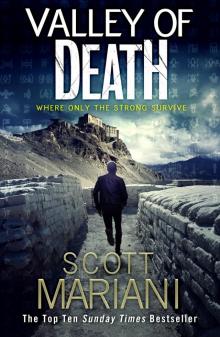 Valley of Death
Valley of Death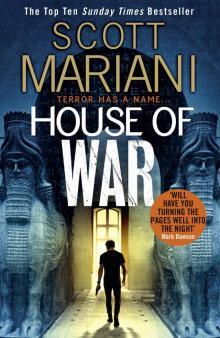 House of War
House of War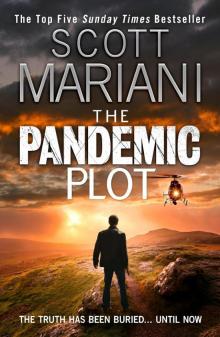 The Pandemic Plot
The Pandemic Plot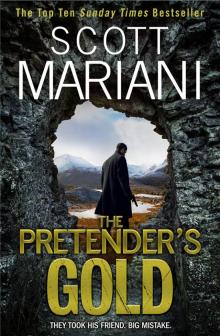 The Pretender's Gold
The Pretender's Gold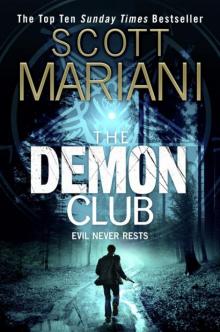 The Demon Club
The Demon Club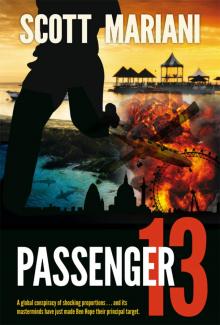 Passenger 13 (Ben Hope eBook originals)
Passenger 13 (Ben Hope eBook originals)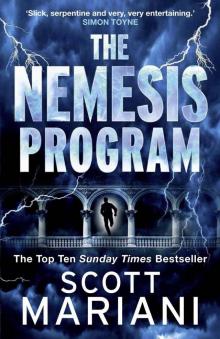 The Nemesis Program_Ben Hope
The Nemesis Program_Ben Hope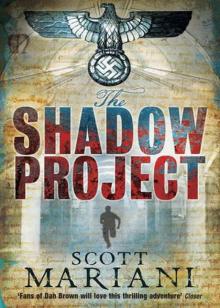 The Shadow Project
The Shadow Project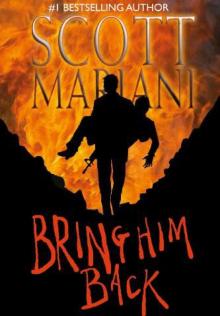 Bring Him Back
Bring Him Back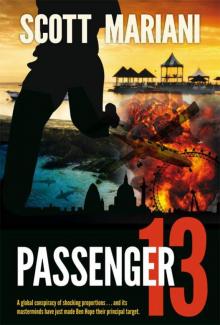 Passenger 13
Passenger 13 Sacred Sword (Ben Hope 7)
Sacred Sword (Ben Hope 7)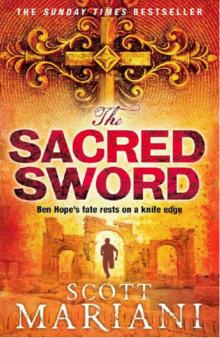 The Sacred Sword (Ben Hope 7)
The Sacred Sword (Ben Hope 7)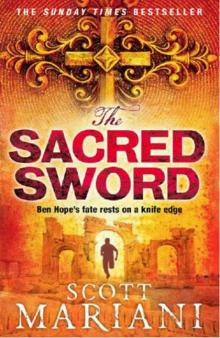 Sacred Sword
Sacred Sword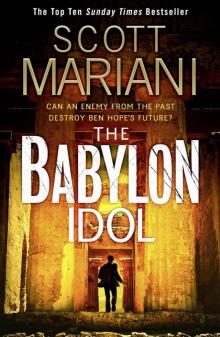 The Babylon Idol
The Babylon Idol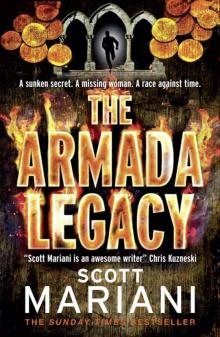 The Armada Legacy
The Armada Legacy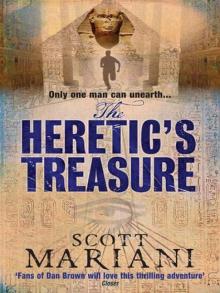 The Heretic's Treasure
The Heretic's Treasure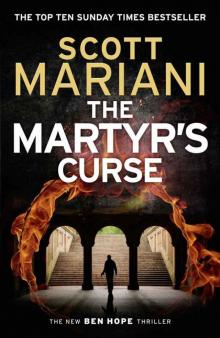 The Martyr’s Curse
The Martyr’s Curse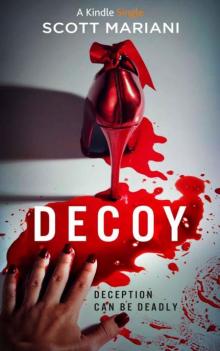 DECOY (Kindle Single)
DECOY (Kindle Single)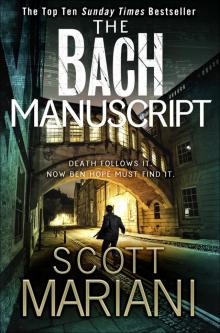 The Bach Manuscript
The Bach Manuscript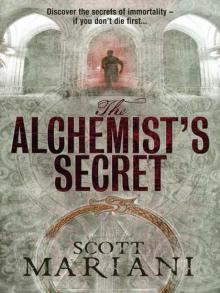 The Alchemist's Secret
The Alchemist's Secret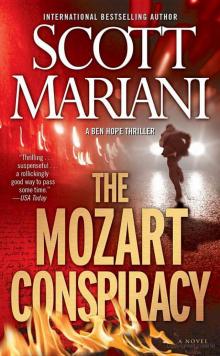 The Mozart Conspiracy: A Novel bh-2
The Mozart Conspiracy: A Novel bh-2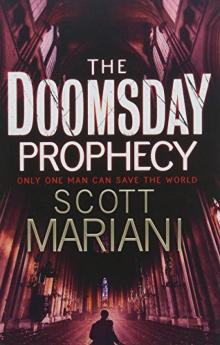 The Doomsday Prophecy
The Doomsday Prophecy The Ben Hope Collection: 6 BOOK SET
The Ben Hope Collection: 6 BOOK SET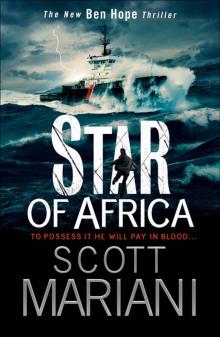 Star of Africa (Ben Hope, Book 13)
Star of Africa (Ben Hope, Book 13)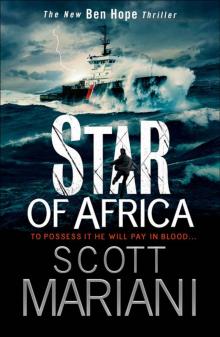 Star of Africa
Star of Africa The Forgotten Holocaust (Ben Hope, Book 10)
The Forgotten Holocaust (Ben Hope, Book 10)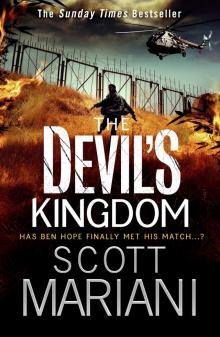 The Devil's Kingdom
The Devil's Kingdom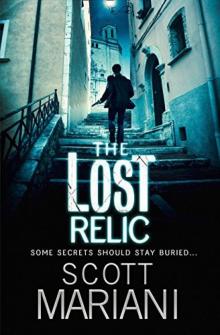 The Lost Relic
The Lost Relic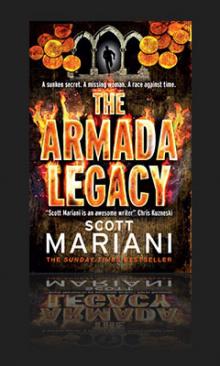 The Armada Legacy bh-8
The Armada Legacy bh-8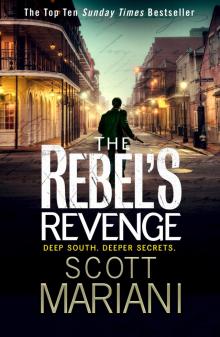 The Rebel's Revenge
The Rebel's Revenge The Forgotten Holocaust
The Forgotten Holocaust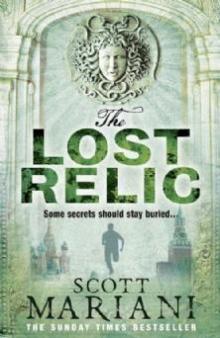 The Lost Relic bh-6
The Lost Relic bh-6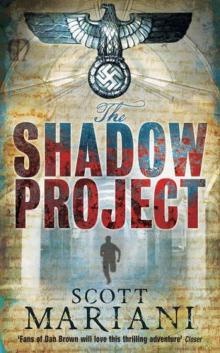 Ben Hope 05 - The Shadow Project
Ben Hope 05 - The Shadow Project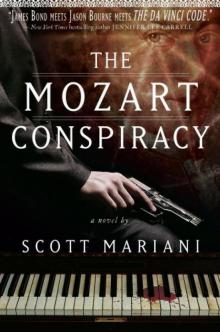 The Mozart Conspiracy
The Mozart Conspiracy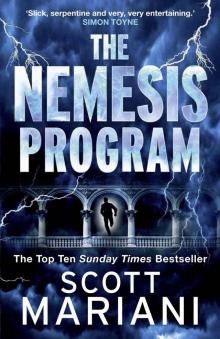 The Nemesis Program
The Nemesis Program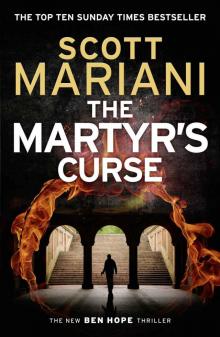 The Martyr’s Curse (Ben Hope, Book 11)
The Martyr’s Curse (Ben Hope, Book 11)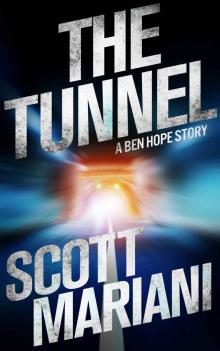 THE TUNNEL: A Ben Hope Story
THE TUNNEL: A Ben Hope Story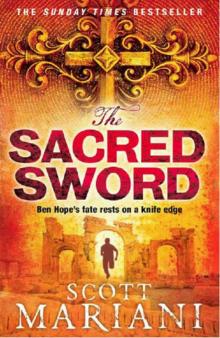 The Sacred Sword bh-7
The Sacred Sword bh-7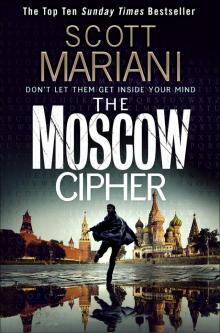 The Moscow Cipher
The Moscow Cipher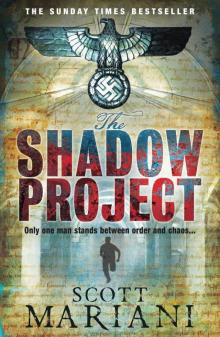 The Shadow Project bh-5
The Shadow Project bh-5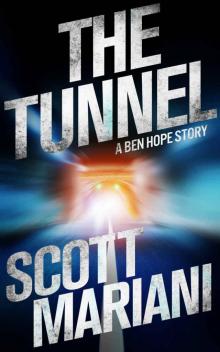 The Tunnel
The Tunnel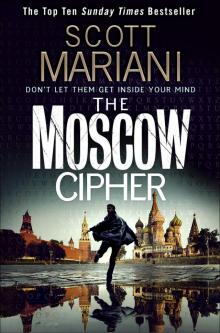 The Moscow Cipher (Ben Hope, Book 17)
The Moscow Cipher (Ben Hope, Book 17)